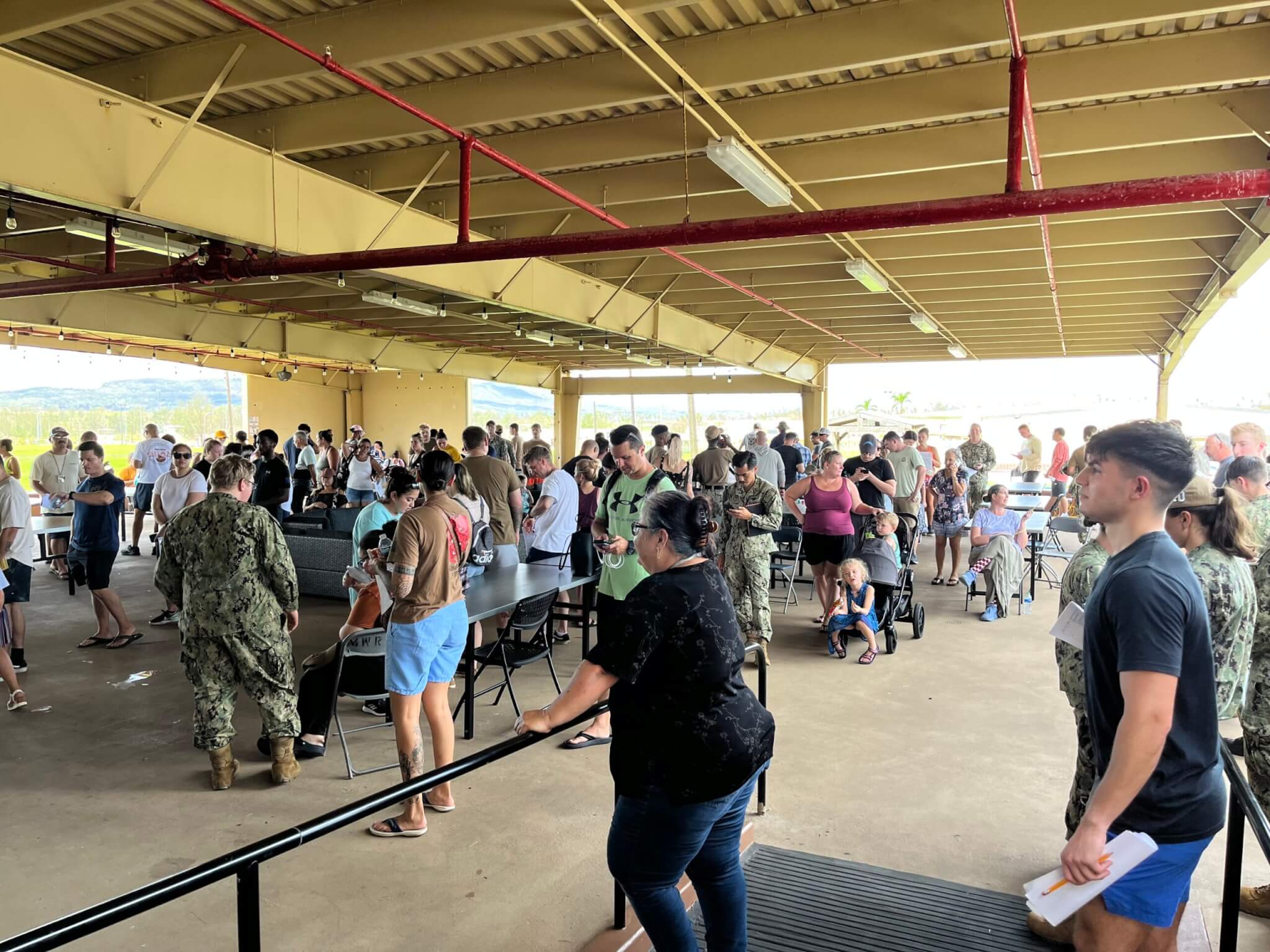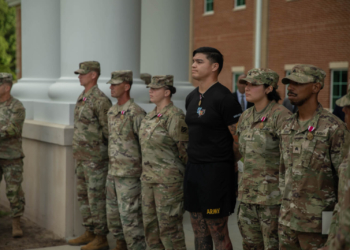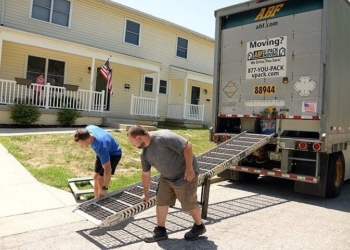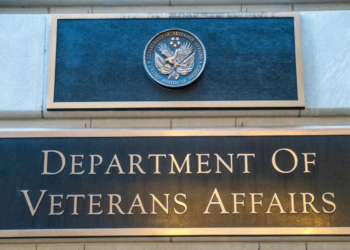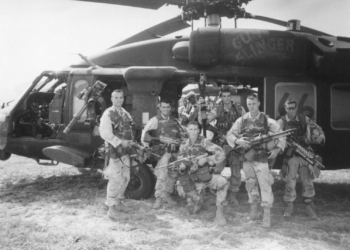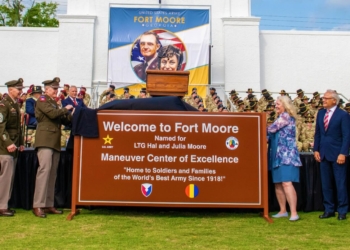Navy-Marine Corps Relief Society has disbursed more than $1.4 million to Guam-based service members and retirees impacted by Typhoon Mawar.
Karen Fahland eyed the pregnant woman walking into the Guam office of Navy-Marine Corps Relief Society last month. The mother looked exhausted as she shared her story: her husband was deployed, she had two small children at home and they had just survived the devastating Typhoon Mawar, without power or water.
“She gave me the biggest hug, because she just needed that moment of support from an adult,” Fahland said. “It was incredible that we were able to help her.”
As the director of the Guamanian arm of NMCRS, Fahland wasn’t just professionally interested when Typhoon Mawar blasted through in May. She is personally invested, too, given that she’s lived on and loved the small island in the western Pacific Ocean for the past 11 years.
“It’s a very laidback atmosphere, a tight-knit community,” she said. “So we didn’t think anything of this approaching storm, no big deal, like maybe we’ll get some rain.”
Three days after that thought, Typhoon Mawar was upgraded from a tropical storm to a typhoon. Its fury ― with winds of 140 miles per hour stripping off roofs, uprooting trees and tossing trucking containers like children’s toys ― hit its stride on May 24.
Fahland said she already knew what to do, even as her apartment building quivered: start planning how to best help the thousands of military families and retirees around Guam once the typhoon departed. It’s what NMCRS has been doing since 1904. Today, with locations around the globe, NMCRS offers financial assistance, classes and other support services to sailors, Marines, retirees and their families.
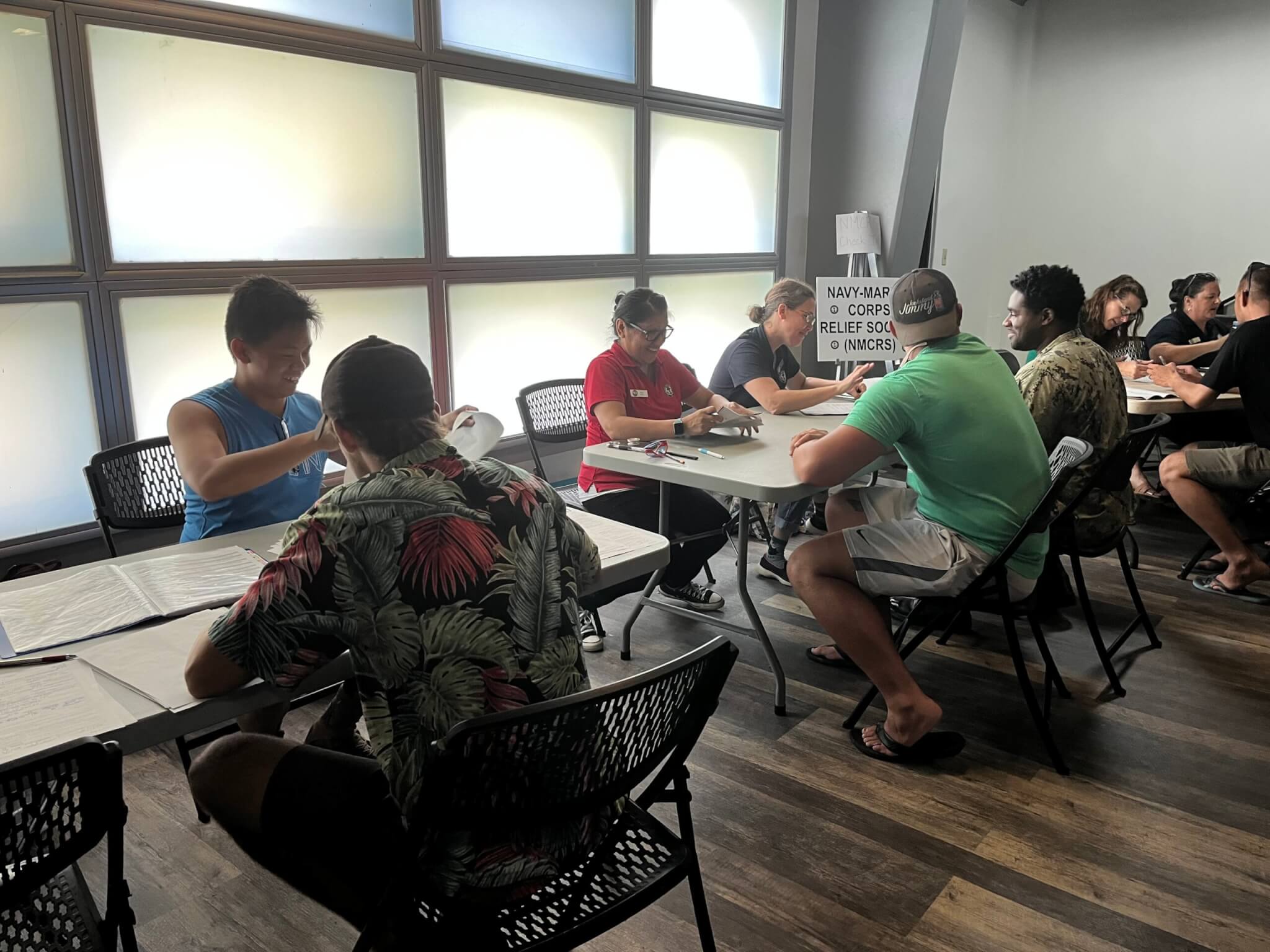
The NMCRS team established an emergency family assistance center by May 30, giving out immediate monetary grants for food, gasoline and other essentials.
“I would say everyone who has come in is incredibly grateful,” Fahland said. “You can see their body language change once they realize they’re going to be able to feed their families. They come in with shoulders down, but when we’re able to help, that goes away.”
Those are the exact type of firsthand accounts Marine Corps Lt. Gen. Robert R. Ruark, NMCRS president and CEO, likes to hear.
“I think we’re the only military aid society there in Guam, which means that we were immediately able to start helping with emergency needs,” he said. “It’s a very communicative society there and word spreads fast, even with the power out, so each day our numbers of those we have assisted have grown.”
At the time of reporting, NMCRS assisted more than 3,000 service members and retirees affected by Typhoon Mawar, with an estimated $1.4 million in grants deposited straight into their bank accounts. Ruark said recipients are using the money on groceries, gasoline, water and clothing, as the typhoon not only decimated everyone’s pantries, but also their closets. NMCRS also has a thrift shop selling gently-used clothing and household goods ― critical, given that so many wardrobes and kitchens are now moldy or fried.
“We’ve been able to do all this in a very quick and responsive manner,” Ruark said. “We’ve even been enjoying supporting some soldiers who are stationed in Guam, too.”
Though Typhoon Mawar thankfully caused no fatalities, it did create $112 million in damages. Weeks afterward, about one-third of the territory’s 170,000 residents are still without power. And as Fahland pointed out, many military spouses and children rode out the typhoon alone, since ships and submarines could not be in port during the storm.
“I have never been through anything like Mawar,” Fahland said. “The wind was howling like a freight train.”
Despite living on the eighth floor, her entire apartment was flooded and she has since found mold in her shoes. NMCRS volunteers around Guam have gone through similar hardships, yet each has tirelessly continued to report for duty, Fahland said.
NMCRS only has two employees on the island, including herself, and the rest are volunteers. It’s a good reflection, she says, of how NMCRS relies significantly on private donations from concerned citizens who want to help.
“Even if someone donates $5, we’re so grateful,” she said.
Ruark agreed.
“When you take care of the sailors, soldiers, airmen and Marines far away from home, you’re doing something that nobody else can do,” he said. “You’re doing something they’ll never forget, and that’s incredibly valuable.”


